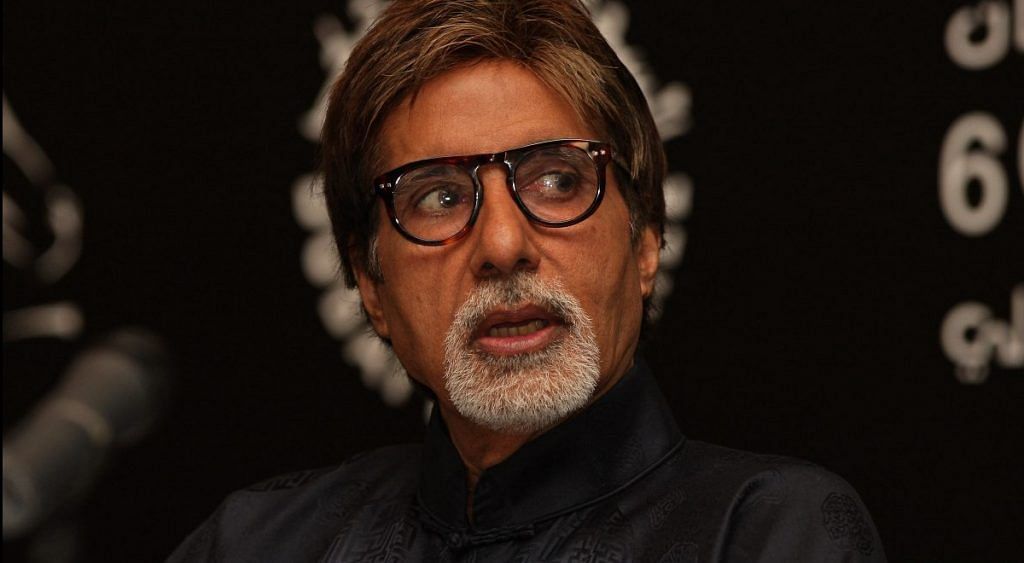Amitabh Bachchan and Imran Khan epitomised an urbane, defiant modernity in the 1980s. Today, both are regressing into apologist shells of their cultural pasts.
There was a time when two cross-border heroes graced the swooning generations’ bedroom walls and wardrobe doors in India and Pakistan. One was the long-limbed, fast-paced Imran Khan, and the other was the brooding, angry Amitabh Bachchan.
Both showed promise and epitomised an urbane, defiant modernity. Today, both the heroes, in their waning years, are regressing into the apologist shells of their cultural pasts.
The social contract they entered into with their fans in the 1980s now lies tattered. Imran Khan and his motley crew of the opportunistic, the manic and the forbidding are a far cry from the lofty ideals the ‘captain’ had promised us. And the baritone voice now chooses safe silence.
Brand Khan united hearts across borders and destroyed wickets. And Brand Bachchan charmed the subcontinent, defying the hallowed troika of state-family-religion. It was difficult to separate their on-off screen and on-off field personas.
The heroes captured the imagination of people living under the sway of General Zia’s authoritarian rule. In India, Indira Gandhi looked at her election mandate smugly and ruled with an iron fist. Both nations began to grapple with the breakdown of the illusion of singular identity and were beginning to use force to put it back in place.
It was at such a time that Khan and Bachchan allowed us to dream a little in a glum decade. It wasn’t easy for someone living under the increasingly militaristic, right-wing state. The delights of cricket and cinema offered us some respite and shared spaces with the wild ones next-door.
We watched our gods feint and jab, roar aloud and purr; playing us as puppets with their prowess with the willow and leather, celluloid and lights.
The Bachchan of the 70s and 80s was the moral compass with which I navigated my teens in Pakistan. With Sholay, Deewar, Muqaddar Ka Sikandar and Shakti, he taught us to live like a lion for a day.
Khan took a brief sabbatical and returned to captain a World Cup win. He set up the Shaukat Khanum Memorial Trust and Pakistan was richer for it. Bachchan too stepped away from the lights for a political innings, which was as abbreviated as anyone facing an Imran Khan bowling spell.
Little did we know that there was a new chapter waiting for our two heroes. And, this is where the story begins to spoil.
The year was 1996. Bachchan’s ill-fated tryst with business, Amitabh Bachchan Corporation Limited was launched, marking the beginning of corporatisation of entertainment. Imran Khan founded a political party, Pakistan Tehreek-e-Insaf (PTI).
Ever since, it has been a mad tumble down the rabbit hole for both the heroes and the nations. Time froze and we have been stationed as permanent features at the Mad Hatter’s Tea Party.
Imran Khan went on like a desi uncle, his angry rants and lectures masquerading as opinion pieces in newspapers. The first target of his rant, as with any moralising messiah, was the agency of women. In the 90s, he wrote for The News about the so-called ‘NGO women’ who, according to him, were choosing the bottle, and dumping their children with unfeeling caregivers so that they could play with Western agendas. VIP culture and brown sahibs were his pet rants.
Every criticism of Bachchan is fended off saying he lost his empire once and had to ask his good friends to bail him out. So just sit down and listen.
The paths of the two (fallen) heroes did cross at a Shaukat Khanum Memorial Trust fundraiser, as they enjoyed the music of Nusrat Fateh Ali Khan. In videos that continue to be shared even today, Khan is seen singing (ironically) Tum Ek Gorakh Dhanda Ho (you are a baffling puzzle). Other than the Divine, was Nusrat nudging us toward gods that were gradually developing their clay feet?
https://www.youtube.com/watch?reload=9&v=qdCANGQ305g
So, it is with a heavy heart that we make space for a Bachchan as the pater familias, as he uttered “bus keh diya tou keh diya Nandini” and “Parampara, Pratishtha, Anushasan”.
He wants to be seen as woke and relevant. But he also tells us not to question the government and trust it, and loses his voice when it comes to talking about the rape of a child. I wonder if our beloved Bachchan lies tied up in a villain’s lair somewhere, and an imposter walks amongst us these days.
And on the other side of the border, the surly Khan gains a new wife with each avatar, and the enlightened moderation makes way for a Taliban apologist. This just ain’t cricket, sir.
Nazia Hasan, the teenage disco queen who also united India and Pakistan in the 1980s, sang: Mai Insaan Hoon Farishta Nahi, Darr Hai Behek Na Jaao Kahin. Imran Khan and Amitabh Bachchan were, after all, mere mortals, and became part of the same constricting system they once defied.
Aneela Babar is a gender and cultural studies specialist, and the author of ‘We Are All Revolutionaries Here: Militarism, Political Islam and Gender in Pakistan’.
